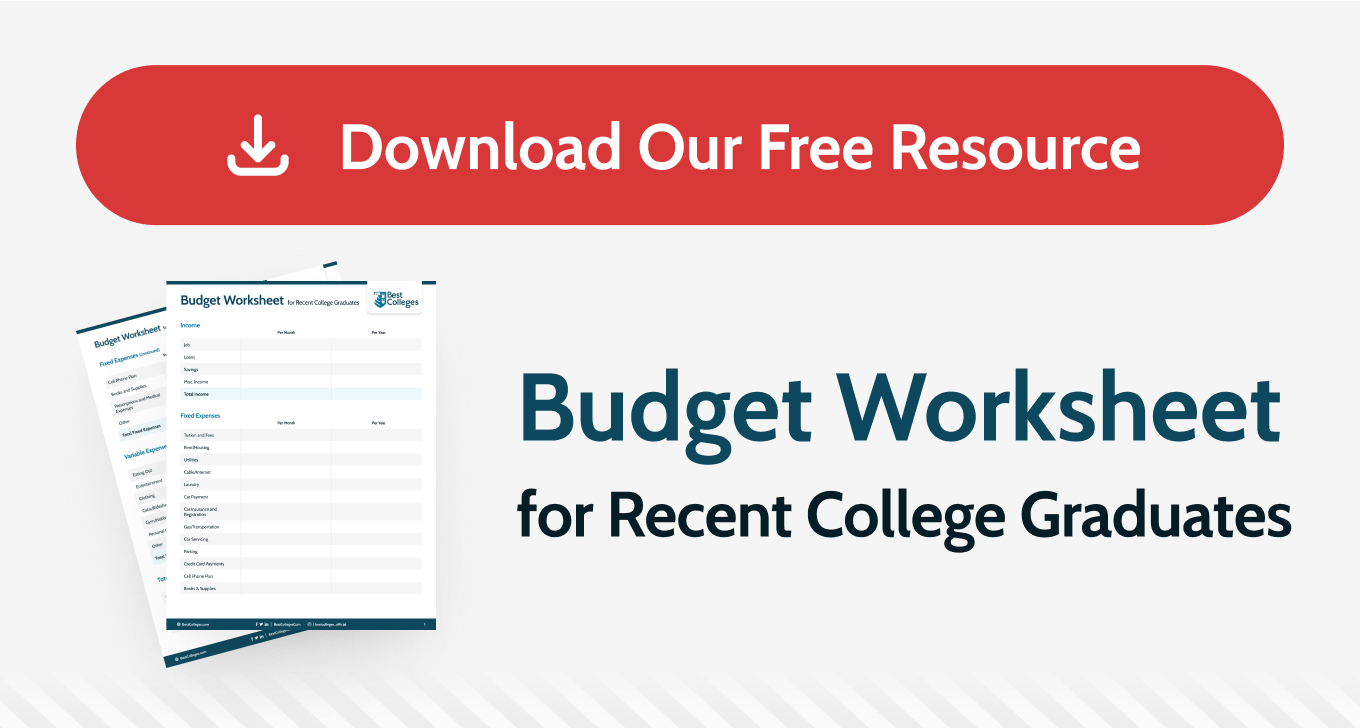5 Financial Planning Tips for Recent College Grads
- Financial planning helps people reach their goals — from paying off debt to saving money.
- Recent graduates need to set clear financial goals and track their progress.
- Creating a budget and using money-tracking apps can help grads organize their finances.
College financial planning tips can help you limit student loans and graduate with less debt. But what about after college? What’s the best way to manage your finances as a recent grad?
Let’s start with the basics.
What is financial planning? Financial planning means tracking your income, expenses, and debts. It also means planning for your future — from short-term goals like paying off a car note or saving for a vacation to longer-term goals like paying off student loans and saving for retirement.
Our financial planning tips can help recent grads organize their finances and reach their financial goals.
1. Write Down Your Financial Goals
Setting clear financial goals can help new grads improve their financial position. Start by creating a budget and setting achievable goals.
For example, your goal might be to pay off high-interest debts, such as a credit card or car loan. If you recently started a new job, set a goal to max out your company’s 401(k) match. Or consider setting a savings goal, like saving enough to take a vacation each year.
Writing down your goals can also help you track progress toward financial independence.
2. Use Tools and Apps to Stay on Track
Managing your finances can feel overwhelming. But using financial planning tools and apps can help you organize your finances.
The best financial planning apps track your income and expenses so you can create a budget and reach your financial goals. Many of these tools require some preparation, such as connecting your banking account or credit card information. However, a little upfront work can mean avoiding overdue bills and paying off your debts sooner.
3. Create a Budget
In a 2020 survey, only 23% of Gen Zers knew what they spent last month. That’s a problem from a financial planning perspective.
Creating a budget can be the solution. Recent grads benefit from tracking their income, expenses, and debt.
But what’s the best way to create a budget? Start with the numbers. Figure out your monthly income, including any side hustles. Then calculate your expenses, including fixed and variable expenses. That way, you can create a budget that leaves you with money to save every month.
It’s also important to calculate your total debt, including student loans and credit cards. Determine which debts charge the highest interest rates and prioritize paying those off first to save money.
Our budgeting worksheet can help you organize.


4. Build Your Credit Score
How can recent grads improve their credit scores? Start by paying your bills on time.
One study found that 35% of people didn’t pay a bill because they simply forgot about it. Use your budget and tracking tools to pay on time, or consider automating payments.
Next, try to keep your credit card spending to 30% of your credit limit.
Finally, be consistent and patient. If you continue to pay your bills on time, your credit score will likely go up.
5. Start Saving for Retirement
Retirement might seem like a long way off, but starting early can make a huge difference. Even a small amount will grow over time.
If your job offers a retirement plan, add a percentage of your income every month. When you get a raise, increase that percentage.
You can also open your own retirement account. Brokerage companies like Fidelity Investments, Vanguard, Voya Financial, and Charles Schwab offer retirement accounts and investment management services.
Feature Image: Andy Sacks / The Image Bank / Getty Images
